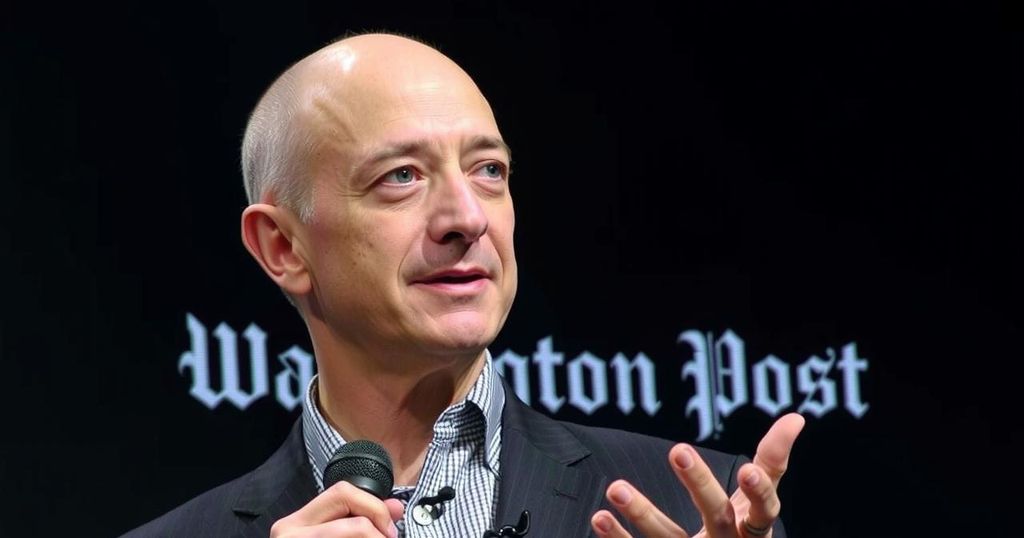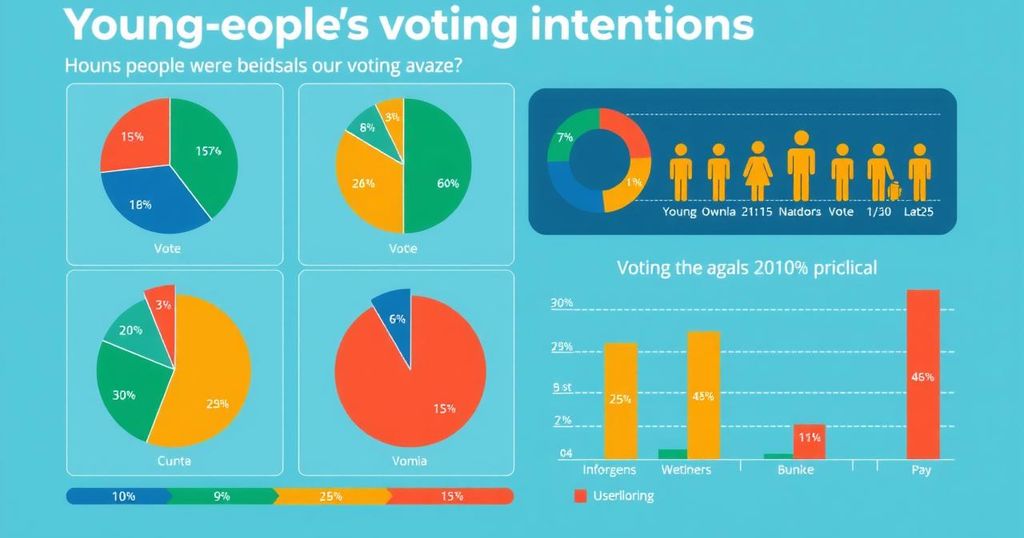Jeff Bezos Supports The Washington Post’s Decision to End Presidential Endorsements
Jeff Bezos has defended The Washington Post’s choice to end presidential endorsements, arguing that such endorsements create a perception of bias that undermines the media’s credibility. This decision has drawn criticism, leading to significant subscriber cancellations and dissent among the newspaper’s columnists. Publisher William Lewis reaffirmed this change as a return to the newspaper’s original principles.
Jeff Bezos, the owner of The Washington Post, has publicly defended the newspaper’s recent decision to discontinue presidential endorsements, a move that follows reports of approximately 200,000 digital subscriptions being cancelled in response to this announcement. The decision, revealed last Friday, reportedly halted an anticipated endorsement of Democratic candidate Kamala Harris, leading to dissatisfaction among some subscribers who expressed their frustrations towards Bezos, who is also the founder of Amazon and aerospace company Blue Origin. In an opinion piece published in The Washington Post, Bezos asserted that endorsements foster a perception of bias and undermine media credibility, stating, “Presidential endorsements do nothing to tip the scales of an election. What presidential endorsements actually do is create a perception of bias. A perception of non-independence. Ending them is a principled decision, and it’s the right one.” Despite the critical timing of this policy change, which comes shortly before Election Day, Bezos clarified that no candidate was consulted about this decision, emphasizing that there was no connection with a recent meeting between Donald Trump and Blue Origin executives. In a corroborating statement, William Lewis, the publisher and CEO of The Washington Post, announced that the newspaper would refrain from endorsing any presidential candidates, signaling a return to its historical position on this issue. However, the decision has sparked considerable dissent within the newsroom, as a notable group of columnists has expressed their concerns, contending that the cessation of endorsements marks a significant deviation from the fundamental editorial principles of the publication. Furthermore, it follows a similar decision made by the Los Angeles Times, which acknowledged the financial repercussions it faced due to its choice not to endorse a candidate.
The Washington Post, regarded as a significant media institution in the United States, carries a storied legacy characterized by its contributions to critical journalism, exemplified by its coverage of the Pentagon Papers and the Watergate scandal. The publication’s commitment to reporting integrity has been recognized through its 76 Pulitzer Prizes. In a climate where perceptions of media bias are prevalent, the decision to discontinue presidential endorsements becomes an essential discussion point, especially considering recent subscriber responses and concerns among its journalists regarding the implications for the newspaper’s editorial integrity and independence.
In conclusion, Jeff Bezos’s defense of The Washington Post’s decision to eliminate presidential endorsements underscores his belief in enhancing media credibility and mitigating perceptions of bias. However, this controversial decision has incited backlash not only from disgruntled subscribers but also from within the journalistic community of the newspaper itself. As The Washington Post navigates these challenges, its historical commitment to quality journalism remains a focal point of scrutiny and debate.
Original Source: www.aljazeera.com




Post Comment